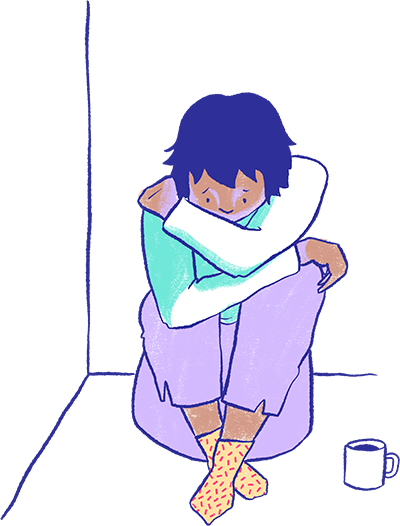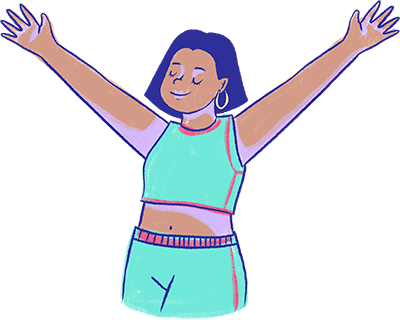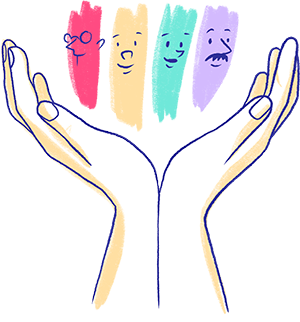
Humanists and the non-religious are often invisible in our society, especially in religious countries like the Philippines. This is especially obvious for humanists during the holidays. In line with this, we are sharing excerpts from a series of educational modules we are producing in collaboration with Humanists International. This season, we hope everyone can be as inclusive so we can all avoid prejudice and discrimination.
Growing Non-Religion
Around the world, non-religion is growing. In the Philippines, a 2020 SWS survey found that 73% of people said religion was “very important.” While this number is high, this was a 10-point drop from 83% in 2019.
This is good news for new humanists everywhere. As religious influence diminishes, humanists may experience greater freedoms and less institutional bias toward organized religions. While religion and non-religion can coexist in theory, history repeatedly shows that organized religions (particularly predominant ones) use their institutional power against minority religions and the non-religious.
The Freedom of Thought Report by Humanists International records violations of religious freedom, particularly those by organized religions. For example, they report that the Philippines has “legal or constitutional provisions [that] exclude non-religious views from freedom of belief” and “expression of core humanist principles on democracy, freedom or human rights is severely restricted”.
Impact on Humanists as a Minority
Loneliness for the non-religious

While non-religion is growing fast, humanists are still largely a minority in most parts of the world. And because religion is a major source of community for many people, it can be very lonely to be a humanist if you don’t know others who share your secular outlook. In a recent Filipino Freethinkers survey on Religion and Belief, over 68% of openly non-religious respondents said they had felt discriminated against or excluded because of their non-belief.
Loneliness can have significant negative effects on mental health, so humanists need to be aware of these risks. Along with loneliness may also come some confusion with self-identity. For many people, religion has been a crucial part of their lives. Leaving their religious community can send them into conflict not just with the people close to them but also with their own self-identity. This process, often called “deconversion,” can be emotionally taxing, but ultimately necessary in their journey away from religious influence.
Facing minority stress
As with other minorities, humanists may go through something called “minority stress.” Often experienced by LGBT people and racial minorities, minority stress creates pressures that harm the mental health of people in minority groups. These kinds of stressors are unique to minority groups, who live in a society where privileged groups in the majority dictate their status. Navigating through such hurdles and challenges as discrimination, negative stereotypes, and violent threats takes an emotional toll. Minority stress happens when “stigma, prejudice, and discrimination create a hostile and stressful social environment that causes mental health problems.”
An example of stigma non-religious people may face is the belief that they are “less moral” than religious people. When faced with such discriminatory beliefs, especially in highly religious societies, people can be discouraged from living openly as humanists or atheists.
Mental health impact on non-belief

In a review published in the Canadian Journal of Psychiatry, a majority of studies relating mental health with religion showed “significantly lower rates of depressive disorder or fewer depressive symptoms among the more religious”. Of course, there could be many reasons behind worse mental health outcomes for the non-religious. For example, it may be comforting to believe that there is a benevolent god that will take care of everything in times of crisis. Such comfort is not available to someone who does not believe in gods. On top of cases like this, we must also consider that minority stress can also cause worse mental health outcomes.
Because of these additional sources of stress, a non-religious person may have a harder time coping with difficulties in life than the average religious person. Religious people do not have to worry about these kinds of stress, especially if their religion is the dominant one in their society.
Being Out About Non-Belief
One benefit of finding your humanist community is also finding a group of people you can feel safe being “out” to or being open about your non-belief and humanist views. As more humanists in society feel safe and confident, a humanist identity becomes less of a source of stress — just another socially accepted identity. But since not everyone has the privilege of living as a humanist out in the open, those who do should seriously consider helping those who do not.
In our experience at Filipino Freethinkers, many people choose to join activities anonymously, which is absolutely fine. The most important thing is that humanists have a community they can feel safe in. Even the mere knowledge of this fact — that there is a safe place one could join — can bring comfort to many humanists in hiding.
In our recent survey, respondents shared various stories of coming out. Many stories began with finding their parents’ religion not making any sense once they put some time into really thinking about it. Other respondents shared that they were gay and that their religion, often Catholicism, condemned them as sinners, and they could no longer put up with the hate. Another common reason for humanists to lose their religion is science and how a scientific worldview is incompatible with supernatural beliefs.
Hardships and benefits of coming out

Coming out is not only difficult, the consequences make it even harder. Many respondents shared that they had lost friends or were essentially disowned by their parents when they came out. It is a sad fact that merely sharing your beliefs, not even imposing them on others, is enough for religious people to cut off non-believers from their lives, often using Hell to scare non-believers back into religion.
Regardless of the stress non-religious people might experience, the choice to become one is often fulfilling. According to the Filipino Freethinkers survey, over 60% of non-religious respondents strongly agreed that “being non-religious positively affected their happiness and well-being.”
A study from the University of Montréal found that living openly was associated with mental health benefits for lesbians, gays, and bisexuals (LGBs). LGBs who were out to friends and family had lower levels of the stress hormone cortisol and “fewer symptoms of anxiety, depression, and burnout.” The authors note that the lowered stress might only be true in countries with progressive rights such as in Canada, where the study was done. Without a controlled study specific to non-religious people, it is hard to conclude that the same is true for atheists and humanists. However, these results may suggest that removing stressors, such as concealing your authentic self, can lead to better mental health outcomes even for the non-religious.
Next Steps
Finding community

Part of coming out is being able to finally be free to live your life on your terms without fear of having your secret found out. Treasure the people who stick by you after coming out and accept you regardless of differences in belief.
Humanists may lose people who are close to them, especially those who have a strong conservative stance on religion. Humanist groups can provide comfort and camaraderie. Humanist communities are diverse, and many Filipino Freethinkers members still disagree and debate on various issues: moral, political, or philosophical. This diversity fuels the regular meet-ups we host, which also serves as a venue for fellowship and de-stressing from a world dominated by religion.
Humanists and other non-religious people worldwide have formed communities that allow them to replace some of the positive social aspects religion might bring. Humanists International has a world map of its affiliates so you can find communities close to you. Having a community allows you to feel less of the struggles of being alone and have a group to support you in the issues that typically affect humanists, such as experiencing discrimination.
Fighting against discrimination
Using religion to exert power or control over someone is also known as “spiritual abuse”. Humanists, as people rejecting religious influence, are particularly at risk of being targets of spiritual abuse. Spiritual abuse can occur through religious organizations or as an aspect of domestic abuse. Common examples of spiritual abuse include the use of religious teachings to prevent women from doing anything without the permission of their spouses or male relatives. LGBT people are also subjected to religiously motivated “conversion therapy” in an attempt to make them straight. Worse, religious authority has also been used to protect sex abusers.
The first step in fighting this type of abuse is recognizing it when it happens to you or someone you know. Religious freedom includes freedom from religion: the freedom from these kinds of religious coercion and abuse in particular and the influence of religion in general. Freedom of religion is a core part of the Universal Declaration of Human Rights, and it entitles you to be free to practice your religious (or secular) views your way.
When threatened with the loss of home or financial support, victims of spiritual abuse can seek refuge in domestic shelters and organizations that protect those experiencing domestic abuse. The toll of living with spiritual abuse can also be mentally taxing, which may require professional psychiatric help. Your local humanist organizations may have contacts or even members who can provide professional mental healthcare.
Helping out in small ways

In your own way, you can fight against religious discrimination. Is prayer forced at your public school? Is a manager in your office badmouthing non-religious people? Is “no religion” not a choice in a document you need to fill out? Because of the dominance of religion in certain societies, some simply never even consider being sensitive to non-religious people and thoughtlessly spread the biases they were brought up with.
Speaking up in these situations can help foster a culture that does not simply accept discrimination against the non-religious, however minor. These small slights are called “microaggressions” and are often done by people who are not outright bigoted. According to Lorna Hernandez Jarvis of Whitworth University, types of these microaggressions include: assumptions of inferiority, invisibility, and assumption of roles. These microaggressions are experienced when non-religious people are assumed to be immoral and incapable of good acts. Non-religious people are also often ignored entirely and not considered when supposedly secular institutions like the government hold religious events, such as public days of prayer. When we kindly but firmly call these biases out, it can deter future situations and, in some small way, contribute to dismantling these discriminatory structures in society.
Dealing with laws
Depending on which country you live in, there may be laws favoring particular religions or even forbidding certain religions (or non-religion). If you believe this to be the case, consult local laws and confirm whether you are in any immediate danger of prosecution. It is important to ensure your safety.
Given specific laws in your country of residence, you may also have the freedom to advocate for your rights against discrimination. In the Philippines, Filipino Freethinkers has advocated for the repeal of an archaic law against blasphemy, Article 133, which was used to prosecute reproductive health advocate Carlos Celdran. There may be organizations in your area, such as the American Civil Liberties Union or the Freedom from Religion Foundation that are working for the recognition of the rights of humanists and the non-religion for inclusivity and against religious discrimination.
Read more content and check the references of these excerpts by downloading the module:

